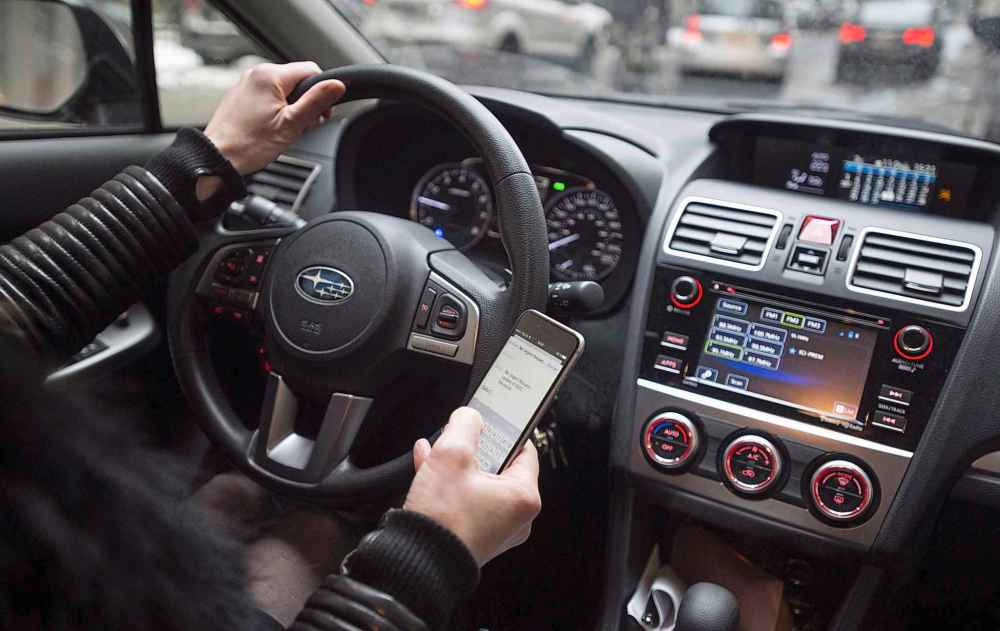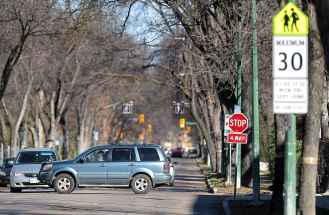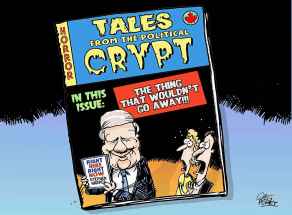Distracted-driving fines a necessary step
Read this article for free:
or
Already have an account? Log in here »
To continue reading, please subscribe:
Monthly Digital Subscription
$0 for the first 4 weeks*
- Enjoy unlimited reading on winnipegfreepress.com
- Read the E-Edition, our digital replica newspaper
- Access News Break, our award-winning app
- Play interactive puzzles
*No charge for 4 weeks then price increases to the regular rate of $19.00 plus GST every four weeks. Offer available to new and qualified returning subscribers only. Cancel any time.
Monthly Digital Subscription
$4.75/week*
- Enjoy unlimited reading on winnipegfreepress.com
- Read the E-Edition, our digital replica newspaper
- Access News Break, our award-winning app
- Play interactive puzzles
*Billed as $19 plus GST every four weeks. Cancel any time.
To continue reading, please subscribe:
Add Free Press access to your Brandon Sun subscription for only an additional
$1 for the first 4 weeks*
*Your next subscription payment will increase by $1.00 and you will be charged $16.99 plus GST for four weeks. After four weeks, your payment will increase to $23.99 plus GST every four weeks.
Read unlimited articles for free today:
or
Already have an account? Log in here »
Hey there, time traveller!
This article was published 18/10/2018 (2613 days ago), so information in it may no longer be current.
Think the beefed-up fines for distracted driving are unfair?
Well, LOL.
The province’s announcement this week that it is cracking down — hard — on distracted driving should come as welcome news to anyone who spends time behind the wheel of a motor vehicle in Manitoba.
Distracted driving, most notably the sort of in-motion inattention that has to do with texting, talking or otherwise fiddling with one’s hand-held mobile device, has become one of the most dangerous practices of motorists in this province and every other jurisdiction with paved roads, mobile citizens and cellphone connectivity.
Public-information programs and pleas for sensible driving behaviour have not helped. Occasional police-enforcement spot checks have failed to put a dent in the problem. So on Tuesday, Infrastructure Minister Ron Schuler — flanked by representatives from the Winnipeg Police Service, RCMP and Manitoba Public Insurance — quite rightly announced that it’s time to make distracted driving an offence that carries a very hefty cost.

Financial penalties for distracted driving will more than triple when the province proclaims new legislation on Nov. 1, with first-time offenders facing fines of $672 (up from the current $203); as well, drivers found in violation by police will receive an immediate three-day licence suspension and a penalty of five demerits on their driver’s licence, followed by a $50 licence-reinstatement fee.
For repeat offenders — and behind-the-wheel texters seem very much to be from the you-can’t-stop-me school of thought — the price will be even more severe; second offences within 10 years will carry a repeat of the same fines, fees and demerits, plus a seven-day licence suspension.
“This is going to be very, very expensive,” Schuler warned. “We want to make the case to the public (that) the amount of accidents… (is) growing exponentially as compared to any other accident. And we have to deal with this.”
According to MPI statistics, distracted driving was responsible for 4,780 collisions in 2012; by 2017, the number of distracted-driving accidents had grown to 15,400. By comparison, impaired driving was cited as the cause of 123 collisions in 2012 and 133 accidents in 2017.
The numbers are almost unbelievable. And the obvious unwillingness of Manitoba drivers to put down their devices while they’re supposed to be focused solely on safe operation of their motor vehicles is flat-out unforgivable.

It should be noted that mobile-device misuse isn’t the only form of distracted driving; police can, and might, also stop and cite motorists for other attention-diverting behaviours such as eating pizza, reading newspapers or tablets or shaving their heads with electric clippers (all of which have actually been observed in Winnipeg traffic). But there’s no mere coincidence in the fact that distracted-driving carnage has skyrocketed since the advent of hand-held wireless mobile devices.
Simply put, the generation that grew up texting represents the majority of drivers who engage in the dangerous practice of device-distracted driving.
In generations past, drivers objected and, for a time, resisted as laws and law enforcement sought to alter behaviour related to drunk driving and seatbelt use. For the most part, those objections were related to the simple truth that people resist change; in the end, pretty much everyone accepted that seatbelts save lives and impaired driving is deadly.
Similarly, the current generation of motorists must learn that distracted driving is unacceptable. Making it a very expensive offence is a useful step in creating the necessary shift in societal attitudes.









